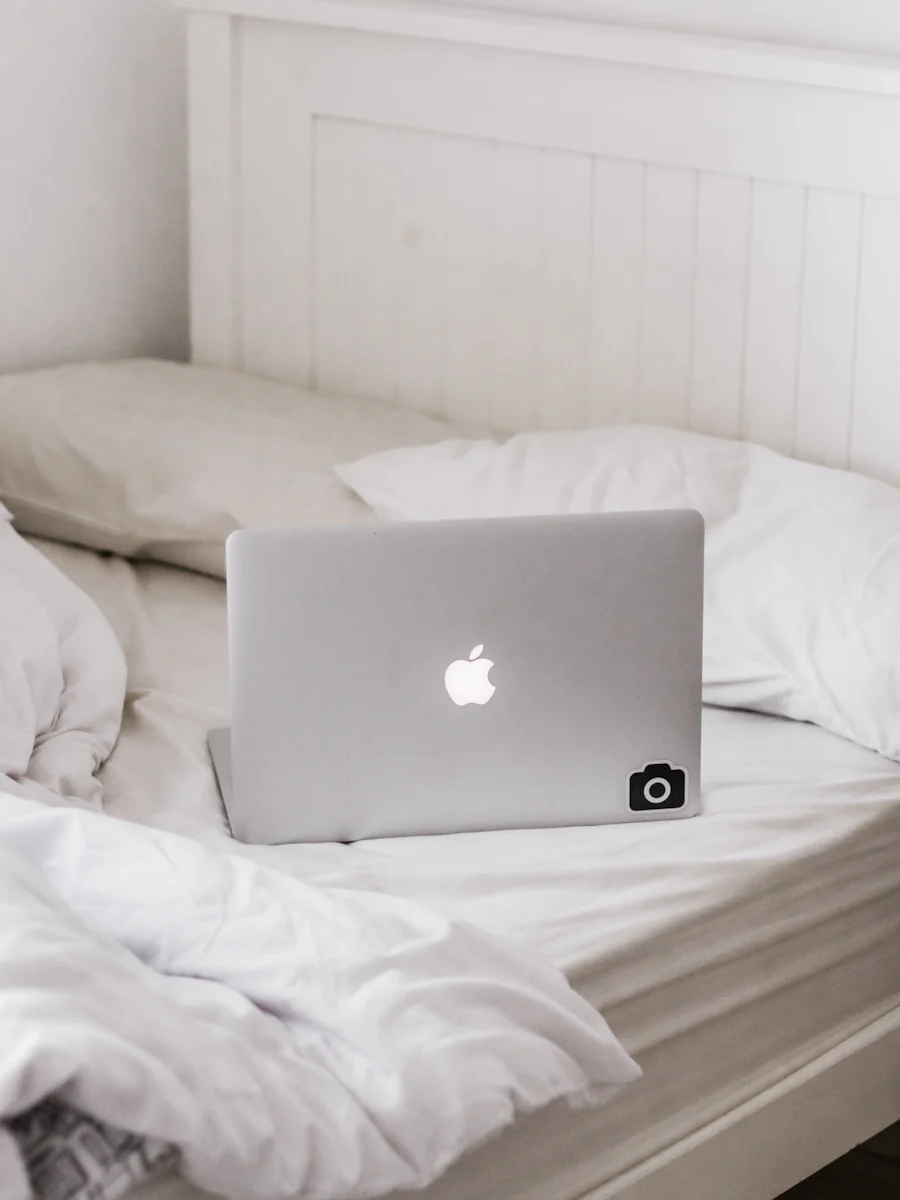
Ever feel like you’re running on fumes trying to get through that seemingly endless to-do list? You’re not alone. Many high-achieving women like yourself struggle to find balance between career, family, and a sense of health and inner wellbeing.
But what if the key to unlocking peak performance lies not in hustling harder, but in powering down?
The surprising truth is that our nightly screen habits might be sabotaging our success.
The blue light emitted by electronics actually disrupts melatonin production, the very hormone responsible for healthy sleep cycles [1]. So, while scrolling through social media or catching up on work emails might seem like a harmless way to unwind, it turns out those screens are actually wreaking havoc on your sleep – and by extension, every other aspect of your life.
The Science of Sleep-Sabotaging Screens
Studies show that sleep deprivation leads to a cascade of negative effects. Physically, we experience fatigue, hindering our ability to tackle demanding schedules. Mentally, focus and concentration suffer, impacting decision-making and productivity. Emotionally, well, let’s just say that patience and positivity take a nosedive when we’re running on empty.
The good news? The benefits of powering down go way beyond just getting a good night’s sleep.
Here’s what you can expect when you create a tech-free zone before bed:

Sharpened Focus and Enhanced Creativity: By silencing the constant digital buzz, we create space for our minds to de-clutter and recharge. This can lead to improved cognitive function, problem-solving abilities, and even a spark of creative genius.
Reduced Stress and Anxiety: The constant stimulation from screens keeps our nervous system on high alert. Replacing screen time with calming activities like reading or meditation significantly reduces stress hormones, promoting feelings of peace and well-being.
Strengthened Relationships: Putting down the phone allows for genuine connection with loved ones. Imagine an uninterrupted conversation with your partner or a relaxing bedtime story with your children, fostering a sense of calm and togetherness in the home environment.
Creating Your Screen-Free Sanctuary
Ready to ditch the tech and embrace the power of a good night’s sleep? Here are some actionable steps to get you started:

- Designate a Tech-Free Zone: Transform your bedroom into a haven for rest. Make it inviting and cozy. Invest in a classic alarm clock (yes, those still exist!) and establish a habit of charging your devices outside your bedroom.
- Dim the Lights: Artificial light exposure can disrupt sleep patterns. Opt for soft lighting or candles to create a calming atmosphere that signals to your body it’s time to wind down.
- Embrace Calming Rituals: Develop a relaxing bedtime routine that doesn’t involve screens. Take a warm bath, read a book, practice gentle stretches, or meditate. These activities signal to your body that it’s time to wind down.
So ditch the devices, embrace the power of a good night’s sleep, and watch all aspects of your life flourish. Remember, a well-rested, balanced you is a superhero in every role you play – #momboss, #careerqueen, and everything in between.
Now that’s a power move worth making!
Chang, A. M., Santhi, N., Zhu, T., Duffy, J. F., Czeisler, C. A., & Zee, P. C. (2013). Blue light emission from electronic devices suppresses melatonin secretion and phase delays in the circadian rhythm]. Sleep, 36(7), 1005-1011.(This reference is in Russian, but it is the relevant study frequently cited for this topic.)
Walker, M. P. (2017). Why We Sleep: Unlocking the Power of Sleep and Dreams. Scribner.
Limoges, E., Sanderson, W. M., & Åkerstedt, T. (2013). Sleep deprivation and cognitive function. Current Opinion in Pulmonary Medicine, 19(5), 435-440.
Mednick, S. C., Cai, D. J., Singhal, A., & Neufeld, B. (2017). A nap breaks down barriers: Enhanced creativity following a post-learning nap. Journal of Experimental Psychology: Learning, Memory, and Cognition, 43(3), 629-646.
Pasricha, S., & Kuo, T. T. (2018). Mind-body wellness practices.
